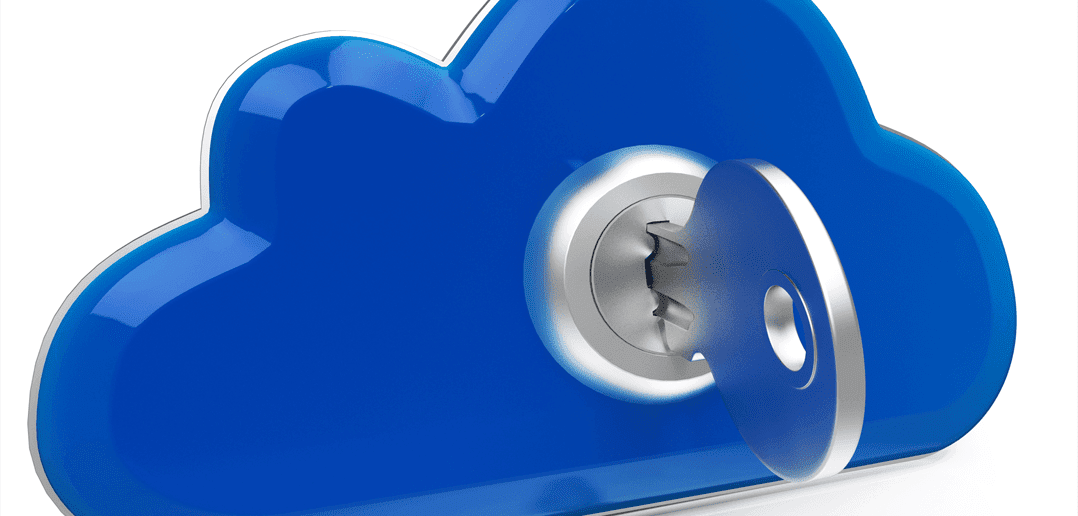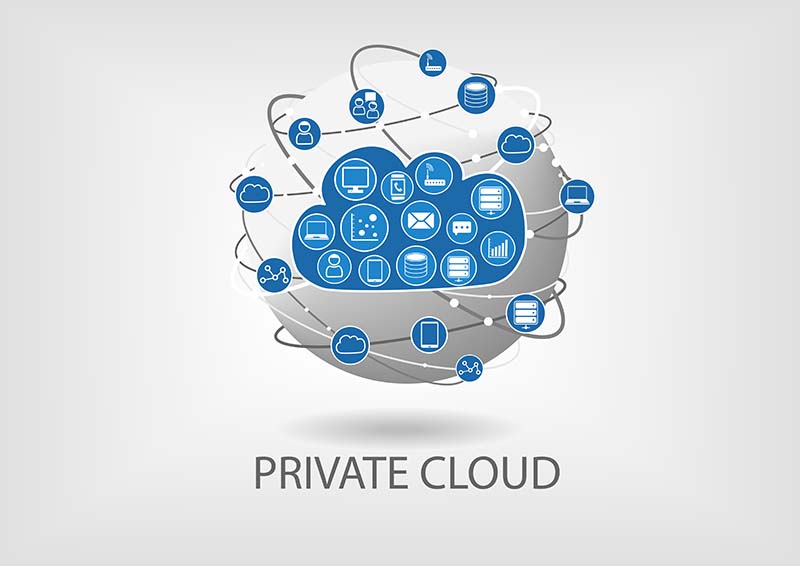
Core Components of a Private Cloud
Private cloud environments consist of several different components. One of the keys to building a productive private cloud environment is to understand what these components are and what they do. This article introduces beginners to some of the most commonly used private cloud components.
What is the Private Cloud
Before looking into its components, let us take a look at what private cloud is and how it works.
The term “private cloud” refers to a cloud computing environment where all hardware and software resources are solely allocated to and accessed by a single client (sometimes referred to as an internal cloud or corporate cloud). Private clouds combine the data access, security, and resource customization of on-premises infrastructure with many of the advantages of cloud computing, such as elasticity, scalability, and simplicity of service delivery.
Because private cloud is a simpler (or the only option) to satisfy their regulatory compliance standards, many businesses prefer it to public cloud (cloud service solutions offered via infrastructure shared by several customers). Others choose for private clouds because their workloads involve sensitive information such as financial data, medical records, intellectual property, and personally identifiable information (PII).
Private Cloud Components
Below is a complete list of the several components which make up a typical Private Cloud.
Web Portal
 The first component that you need to be familiar with is the Web Portal. One of the challenges that administrators face when building private cloud environments is that of accepting connections from Internet-based clients, but without compromising security in the process. Doing so usually means creating a DMZ environment that can be used as an entry point for Internet-based clients.
The first component that you need to be familiar with is the Web Portal. One of the challenges that administrators face when building private cloud environments is that of accepting connections from Internet-based clients, but without compromising security in the process. Doing so usually means creating a DMZ environment that can be used as an entry point for Internet-based clients.
Typically the DMZ contains a server that is acting as a Web portal. A Web portal is nothing more than a Web server that has been configured to accept connections from Internet-based clients.
Once a Web client has established a connection to a Web portal, the user’s ID must be authenticated. There are several different ways to handle the authentication process, but the chosen authentication method must take into account the fact that the DMZ is a relatively insecure environment. As such, it would be extremely risky to place a domain controller, RADIUS Server, or Internet Authentication Server directly into the DMZ. Instead, a gateway server typically acts as a secure proxy between the DMZ and the security on-premises network. This gateway server might, for example, relay authentication credentials to an authentication server.
Backend Components
The backend components can vary widely depending on the vendor whose products are being used and on whether the private cloud is based on the Terminal Services or virtual desktops.
In the case of a VDI deployment, the core components are a connection broker and the hypervisor. The connection broker‘s job is to match end-user session requests to virtual desktops. If a user has not previously established a session, then the connection broker would typically attach the user to an unused (available) virtual desktop. If the user was already working within a virtual desktop and became disconnected (or if the user has a dedicated personal virtual desktop), then the connection broker will reconnect the user with the appropriate virtual desktop.
The hypervisor is responsible for actually running the virtual desktops. Virtual desktops exist as a series of virtual machines. Typically a VDI deployment will make use of several host servers, all of which run virtual desktops. Doing so provides a degree of fault tolerance. It also helps to improve scalability since the end-user workload is distributed across several host servers.
Another essential component of a VDI deployment is a management console. VDI deployments tend to have a lot of “moving parts”. The management console allows the administrator to manage things such as resource pools and virtual machine templates through a single interface.
While these are some of the significant components that tend to be used in a private cloud, it is essential to remember that the required components vary depending on infrastructure type and on the vendor whose products are being used.
The Benefits Offered
Contrarily, a private cloud environment (sometimes referred to as a “single-tenant” architecture), when compared to the public cliud, is designed for a single enterprise. The hardware is owned by the customer, who can also provide virtual environments to other employees at their company. The private cloud was created with the ability to even alter the hardware components. An enterprise could select a private cloud over other solutions for the following key reasons:
Security and Control
You will have full authority over your architecture, data, and apps due to the private cloud’s nature (you own all the hardware and configuration). You don’t share resources like with other cloud platforms, and you may continue to enforce stringent security measures to keep out unauthorized users. Since before the private cloud only has one client, you can divide it up for different organizational divisions.
Disaster Recovery
A private cloud is a well-liked solution for disaster recovery because of the security and control it offers. This specialized cloud environment is used by many enterprises for replication and failover. Therefore, a private cloud infrastructure is perfect for workloads and applications that demand constant availability and zero downtime.
Support of Legacy Applications
Not all legacy programs can be simply transferred to a public cloud. An option to replacing an existing cloud application with a new one is to customize a private cloud to fit the requirements of a certain application.
Private Cloud Environment with Parallels RAS
Parallels Remote Application Server (RAS) reinforces an administrator’s ability to quickly set up key virtualization components to a private cloud environment. Parallels RAS is a platform-independent virtual desktop, application delivery, and integrated Windows client management solution to any modern operating system, as well as to mobile devices, including smartphones and tablets. With Parallels load balancing, end users can achieve a higher level of satisfaction, and computing resources are fully optimized. Operating in a High Availability configuration, Parallels RAS intelligently directs traffic among healthy gateways in the DMZ to remove single-points-of-failure, maximize utilization, reinforce security, and guarantee always-available applications.
The Parallels RAS solution facilitates users to connect to Parallels Published resources through either the Parallels Client or the clientless HTML5 portal easily. Authenticated users gain access to desktops and applications published through Parallels RAS, be it from a desktop PC, tablet, or mobile device. Moreover, remote desktops can be delivered using either a Virtualized Desktop Infrastructure (VDI) or Microsoft Remote Desktop Services (RDS) in a secure and easy-to-manage way. This flexibility allows administrators to mix and match popular hypervisors with popular mobile devices and workstations. All this from a central, easy to use management console.
Download your 30-day trial of Parallels RAS and experience the Private Cloud benefits yourself!

